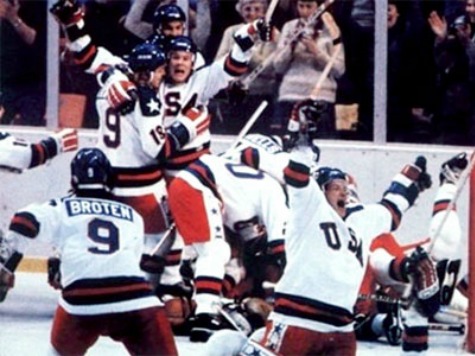The first pucks dropped in the Olympic hockey tournament today. The Czech Republic started taking on Sweden and Latvia began battling Switzerland at 9 p.m. Sochi time, with the remaining eight teams competing tomorrow.
Ice hockey plays as the marquee event at the Winter Olympics even if it doesn’t play as a mainstream sport in parts of the United States or the world. Even for NHL connoisseurs, international play can prove confusing, so Breitbart Sports offers this primer for the twelve-day tournament in Sochi.
Format
The tournament features three groups of four teams. Group A houses Russia, the United States, Slovakia, and Slovenia. Group B encompasses Finland, Canada, Norway, and Austria. Group C features the Czech Republic, Switzerland, Latvia, and Sweden.
Each team plays the others in their group once during the preliminary round. The top four teams then advance to the quarterfinals. The remaining eight teams face off in a one-game playoff, with the winners playing in the quarterfinals. Single-elimination games whittle down the field until February 23, when the Faberge-egg shaped Bolshoy Ice Dome hatches a champion.
Rules
Roughly 150 NHL players will compete in the tournament in Sochi. But that doesn’t mean Olympic hockey will resemble NHL hockey.
The most glaring difference may be the size of the rink. It’s quite a bit larger than the playing surface at the old Buffalo Memorial Auditorium. Whereas North American rinks generally measure 200-feet-long-by-85-feet-wide, Sochi’s ice widens to 100 feet. This makes international competition a speedier, less physical game. This tends to kill penalty-killing and put a premium on puck movement.
Guys like Bob Probert, Terry O’Reilly, and Tiger Williams never played in the Olympics for a reason. Unlike the NHL, the IOC automatically ejects players from games for fighting. Consequently, you won’t see it in Sochi.
Other differences include whistles for offensive players standing in the crease, “no touch” icing calls once the puck passes by the opposing goal, and a more vigorous enforcement of obstruction penalties.
History
There’s been twenty-two Winter Olympiads. But only six different countries have won gold medals in men’s ice hockey. Two of those nations, Canada (8) and the various incarnations of the Russia (8), account for all but six of those gold medals. So cliquish has Olympic hockey been that all but two of the all-time medal winners–Great Britain and Germany/West Germany–compete in this year’s twelve-team tournament.
This is the fifth Winter Olympics featuring NHL players and the eighth featuring professionals. Prior to 1988, many Eastern Bloc countries sent ostensible amateurs to the Olympics who played sports for a living behind the Iron Curtain. Frustration with this lack of fair play, heightened public interest in watching the best, and changing attitudes toward professionalism led to the Olympics welcoming openly-paid athletes in most events.
The twelve teams in this tournament feature players from every NHL roster. The Blackhawks, Red Wings, and Blues sent the most players–ten–to Sochi. The Senators, Predators, Panthers, and Flames sent the fewest–two–to the games.
Outlook
Chemistry can make a hockey team. How does a coach find the right mix after just a few days of practice? This is what makes predicting the tournament a fool’s errand. With great players come great egos, so a team made up of the best players on individual teams doesn’t necessarily make for a great team. Getting the lines right takes time, a luxury none of the teams have.
The defending gold-medal winners seek to win a record ninth top-place finish on the Olympic podium. Oddsmakers place the Great White North’s chances at 2 to 1 of repeating as gold medalists. After sustaining several key injuries–they lost Henrik Sedin and Johan Franzen–oddsmakers now appear less bullish on Sweden. The U.S. enters the tournament at 6 to 1 odds of leaving it with the gold medals.
Russia sits right behind Canada as the tournament favorite. The likely starting goalie for the Russian hockey team was three, and the team wasn’t even called “Russia,” the last time his countrymen won a gold medal at the Olympics. In the nine winter games prior to Seymon Varlamov’s birth, Russians won seven ice-hockey golds. Russians have been starved for what they once regularly dined upon. Their status as an ice-hockey superpower plummeted once their status as a global superpower did. So, the Russians take a great deal of national pride in their performance on the ice. Standing in the top spot becomes exponentially more important given the location of the games.
Can the Russians battle off the pressure, let alone the Canadians, Czechs, and Americans, to win? Any team that boasts both three-time NHL MVP Alex Ovechkin and fellow NHL MVP Evgeni Malkin has a fighting shot. Winning at home may not be the equivalent of the rag-tag band of American college students taking home gold at Lake Placid in 1980, but it will surely rank as the biggest story of Sochi.

COMMENTS
Please let us know if you're having issues with commenting.